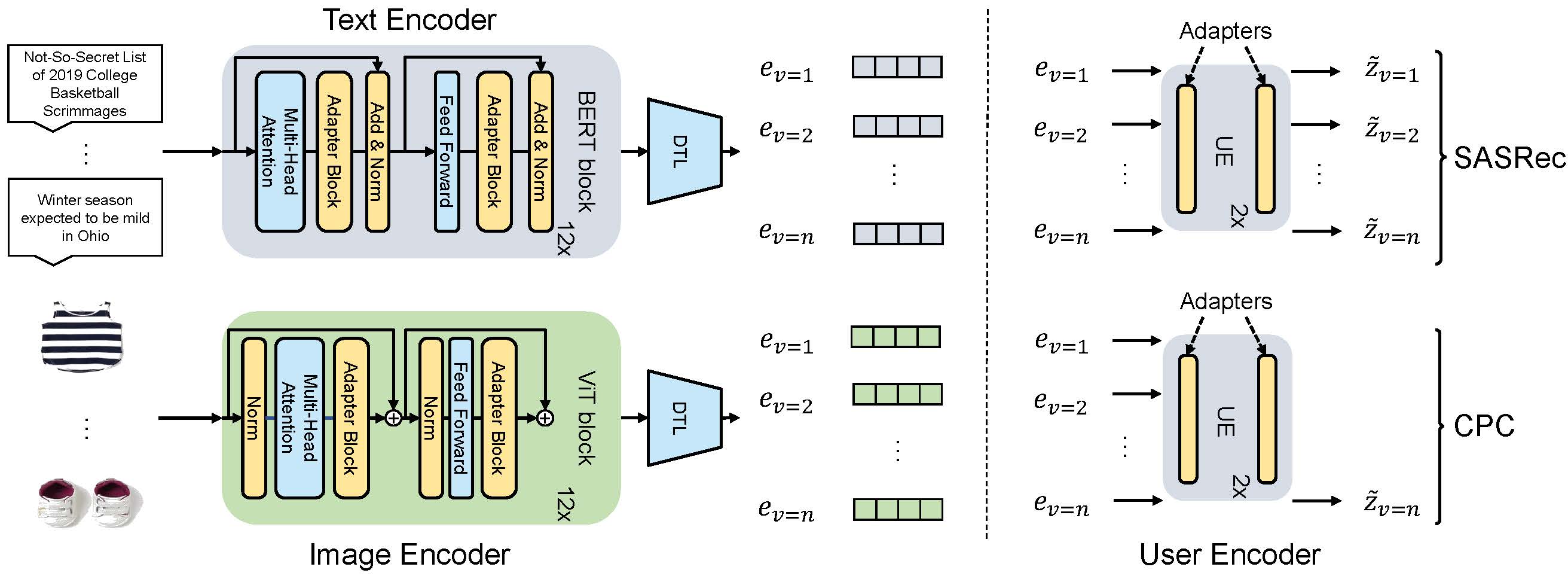Exploring Adapter-based Transfer Learning for Recommender Systems: Empirical Studies and Practical Insights
Adapters, a plug-in neural network module with some tunable parameters, have emerged as a parameter-efficient transfer learning technique for adapting pre-trained models to downstream tasks, especially for natural language processing (NLP) and computer vision (CV) fields. Meanwhile, learning recommendation models directly from raw item modality features -- e.g., texts of NLP and images of CV -- can enable effective and transferable recommender systems (called TransRec). In view of this, a natural question arises: can adapter-based learning techniques achieve parameter-efficient TransRec with good performance? To this end, we perform empirical studies to address several key sub-questions. First, we ask whether the adapter-based TransRec performs comparably to TransRec based on standard full-parameter fine-tuning? does it hold for recommendation with different item modalities, e.g., textual RS and visual RS. If yes, we benchmark these existing adapters, which have been shown to be effective in NLP and CV tasks, in item recommendation tasks. Third, we carefully study several key factors for the adapter-based TransRec in terms of where and how to insert these adapters? Finally, we look at the effects of adapter-based TransRec by either scaling up its source training data or scaling down its target training data. Our paper provides key insights and practical guidance on unified & transferable recommendation -- a less studied recommendation scenario. We release our codes and other materials at: https://github.com/westlake-repl/Adapter4Rec/.
PDF Abstract



 MIND
MIND